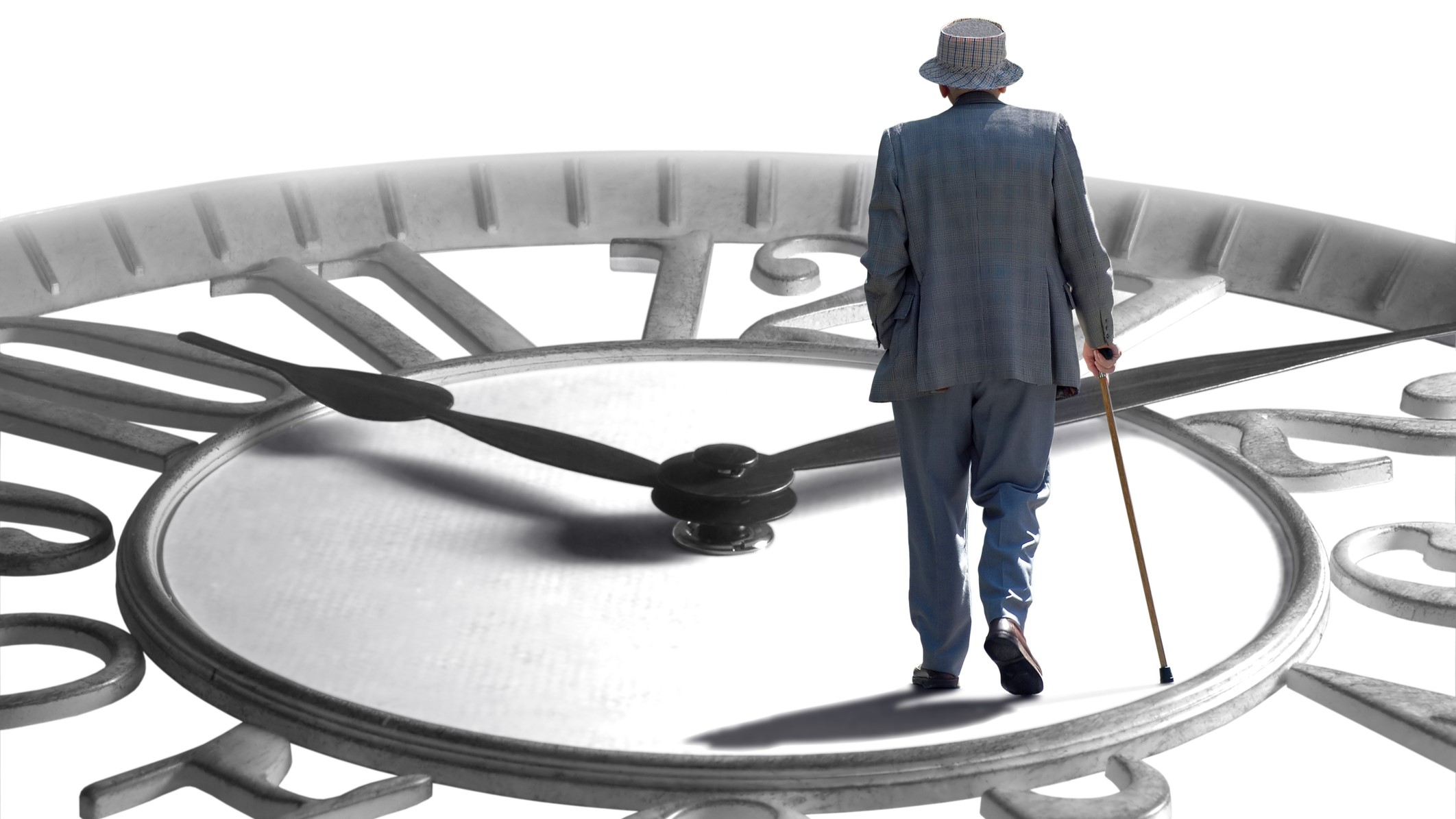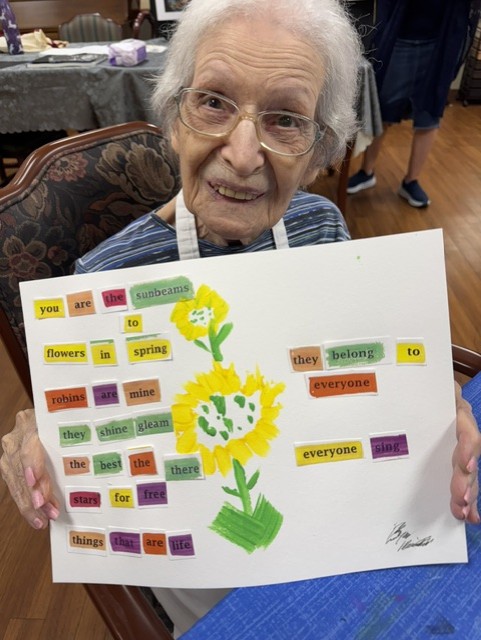By the time this blog is published, I will be 89 years old. For at least 30 years I’ve experienced “isms,” although I didn’t know what to call them.
On October 6, the Symposium sponsored by the United Church Homes Ruth Frost Parker Center for Abundant Aging will focus on two of them: “ableism” and “ageism.”
Those “isms” produce stereotyping, prejudice and discrimination that try to steal a sense of my worth and competence as an older human – if I let them. Even though I am slower or less strong or have to take fourteen meds a day, I choose not to succumb to the “isms.”
But…I Still Can…
I notice it is easier to get the little key into the mailbox lock when I use both hands! Didn’t used to be that way! My physician calls it “intentional tremors.” I retort, “The only thing intentional about it is getting my mail out of the box!” But, I am able to handle my mail!
I remember being the only male in my high school typing class. My typing speed was the second highest. Today it takes as long to correct typing errors as it takes to make them in the first place. But, I am able to correspond and write blogs!
There are days when I think it would be less annoying to not wear socks, or shirts that have to be buttoned. Thank goodness for sock pullers. When I do the unthinkable by today’s dress-up styles and wear a tie and jacket to worship, the white shirt collar button defies the efforts of my less nimble fingers. It can take a dozen tries to make the button hole and the button mate. But, I am able to get dressed by myself.
Now that cataracts have been banished, I clearly see the pastor in the chancel. I am unable to read the hymns without readers. But, I am able to hear the choir and the sermon – if I stay awake!
I am able to put the fifty-pound bag of sunflower seeds in the shopping cart and then in the car trunk. I’m unable to carry it from the car all the way to my apartment door, though, without one of those neat foldup carts. But, I am able to feed the birds.
I am able to remember details from the 1950s and 1960s but often unable to immediately recall last names and some first names from the 2000s!
In conversations I can get the joke (most of the time!) but not so able to remember the punch line just right when repeating it. My younger friends wink, “the jokes on him.”
When walking in the grass instead of on sidewalks, it is better to use a Cane in order to be Abel (pardon my playful wording!). There was even a time long ago when I was able to walk all the steps up into the Statue of Liberty. Now I’m unable to handle many steps either up or down. But, I am able to walk and meet the neighbors!
We are able to do what we can even though there are adjustments to make in our abilities. Dealing with being able and unable, having abilities and adjusting for disabilities is something we all experience in varying degrees. But it ought not make us targets for discrimination, stereotyping, and prejudice!
Does a Disabled Body Need to Be Fixed?
In her book My Body Is Not a Prayer Request: Disability Justice In the Church, Amy Kenny writes examples of well-meaning but demeaning comments from folks who tell her “God told me to pray for you” or “God wants to heal you.”
She shares encounters in church, the grocery store, and on the streets with folks intent on getting God to “fix” her disabilities, and says “To assume that my disability needs to be reversed in order for me to live an abundant life is disturbing…!”
Amy Kenny uses a cane and a wheelchair. She observes all around her “the belief that disabled people are less valuable or less human than our nondisabled counterparts.”
She reminds us that even churches fought against the landmark 1990 civil rights legislation known as ADA (Americans With Disabilities Act). She writes:
“Instead of it being a faithful act of loving neighbors, including disabled people, it is often considered a benevolent act. …I have been denied accessible parking space, educational accommodation, fair housing; reprimanded by police for using the disabled space; ordered to get permission to bring my wheelchair to work; yelled at for requesting accommodations that were signed into law thirty years ago; mocked and accused of faking, and even advised that putting in a temporary ramp at church isn’t ‘stewarding’ tithe money very well!”
Talila A. Lewis adds that “Ableism lurks beneath the surface…. It is a system that places value on people’s bodies and minds based on societally constructed ideas of normalcy, intelligence, excellence, and productability.”
Seems to me that being unable to do what I did when more able, even experiencing some forms of disableness, and clearly showing some agedness, underscores the importance of the Ruth Frost Parker Center for Abundant Aging and this year’s Symposium topic.
We who are aged and with sometimes limited abilities do not need to be “fixed” – nor should we allow ourselves to be victims of those “isms:” ableism and ageism.
What We Need to Do
We do need to celebrate the gift of abundance in aging! Think of the wonderful experiences, the broad perspectives gained by those experiences, the vast numbers of others who have added to our knowledge and insight, the treasured memories of those we have loved and been loved by, and the work – whatever it was – that we were able to accomplish, and for some us even continue to accomplish!.
The October 6 Symposium will help us “change the narrative” of “ableism” and “ageism” as we cherish our abundant gifts of age, ability – and experience.
I hope to see you online at the Symposium!
Shalom!
To learn more about ageism and what you can do to end it, join us either In Person or Online at the 2023 Abundant Aging Symposium with keynote speaker Dr. Tracey Gendron, author of Aging UnMasked: Exploring Age Bias and How to End It. For full details and to register, go to https://www.unitedchurchhomes.org/2023-annual-symposium/.
For Reflection (either individually or with a group)
Read the blog. Read it a second time, maybe reading it aloud or asking someone else to read it aloud so you can hear it with different intonation and emphases.
Then spend some time with the following questions with anything that helps you reflect more deeply. Invite the questions to join you for tea or coffee.
- What would you list as the gifts of abundance in aging in your life?
- Who are the people who have added to your knowledge, insight, and wisdom?
- How would you answer the question, does a disabled body need to be fixed?
- What examples can you name of value being placed on people’s bodies and minds based on societally constructed ideas of normalcy, intelligence, excellence, and productability.”
Download a pdf including the Reflection Questions to share and discuss with friends, family, or members of your faith community small group.
View all articles by:






















